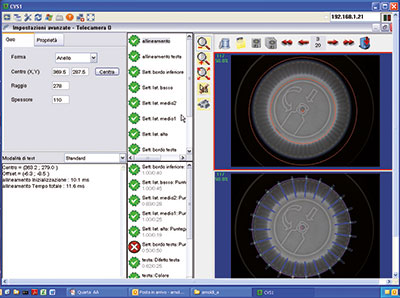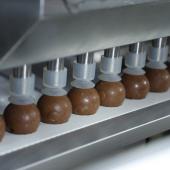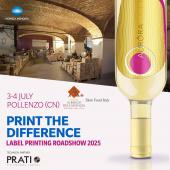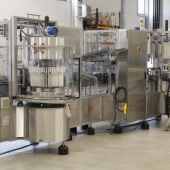Quality at the service of pharma
Controlling the functionality, size and appearance of closures for flacons, droppers and accessories for pharmaceutical packaging: the automatic vision systems adopted by Capsulit guarantee compliance with the strictest international regulations.

For a concern like Capsulit, which operates in the pharmaceuticals market and is therefore frequently subject to customer audits, adequate control of processes is a given, a direct consequence of the application of GMPs, as specified in ISO 15378 and the integrated quality, environment and safety system in response to ISO 9001, OHSAS 18001, ISO 14001, in accordance with their respective certifications. By consequence, attention is moving increasingly toward product quality through legislation that, pushing for high quality consistency, impose compliance of ever narrower AQLs made to prevent defects in size, function or appearance.
 Full inspection. In order to comply with such regulations, naked eye checks by production personnel are not always enough (however useful), nor statistical ones by the CQ.
Full inspection. In order to comply with such regulations, naked eye checks by production personnel are not always enough (however useful), nor statistical ones by the CQ.
For this purpose, a few years ago Capsulit introduced automatic vision systems that are becoming increasingly sophisticated as the technology allows, enabling prevention with near absolute certainty of defects increasingly difficult to see with the naked eye, automatically discarding pieces that do not comply with set criteria.
The most modern systems are now equipped with 6 color cameras that inspect the top, interior and side, subdivided into 4 sectors, controlling functional aspects (like the coupling in capsules for injectable drugs made up of a heatsealed plastic disc with an aluminium ferrule), size and appearance, some of which are fundamental because they enable preventing problems with mixing up products, for example a different color or brand, considered unacceptable.
Speed and precision. The current technology enables managing over 5,000 individual inspections per minute, and for this reason, vision systems can be installed on very fast machines, producing up to 50,000 pieces/hr. Furthermore, their correct functioning is constantly monitored at every shift change or batch changeover thanks to “challenge tests”, performed in order to make sure that any defective pieces or ones not compliant with the parameters set are really expelled.




















